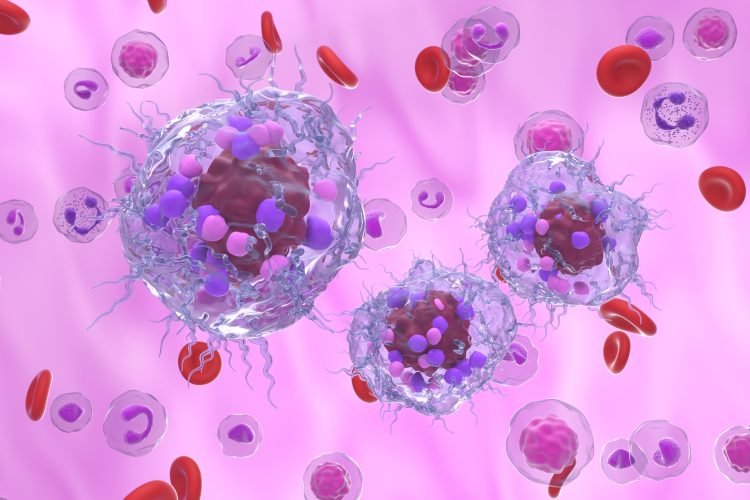ITM-11 boosts survival in neuroendocrine tumour trial
Posted: 3 February 2025 | Drug Target Review | No comments yet
A new targeted radiotherapy offers hope for patients with rare neuroendocrine tumours, demonstrating a significant improvement in progression-free survival in a key clinical trial.


ITM Isotope Technologies Munich SE (ITM), a leading radiopharmaceutical biotech company, has announced positive topline results from its Phase III COMPETE trial. The trial evaluated ITM-11 (n.c.a. 177Lu-edotreotide), a targeted radiopharmaceutical therapy, in patients with inoperable, progressive Grade 1 or Grade 2 gastroenteropancreatic neuroendocrine tumours (GEP-NETs). The results demonstrate a clinically relevant and statistically significant benefit in progression-free survival (PFS) compared to everolimus, a current standard of care treatment.
COMPETE trial design and results
The COMPETE trial, a prospective, randomised, controlled, open-label Phase III study, enrolled 309 patients with Grade 1 or Grade 2 inoperable, progressive, somatostatin receptor-positive GEP-NETs of gastroenteric or pancreatic origin. Participants were randomised 2:1 to receive either ITM-11 or everolimus. ITM-11, consisting of non-carrier-added lutetium-177 and edotreotide, a somatostatin receptor (SSTR) agonist, was administered every three months for a maximum of four cycles. Everolimus was administered daily for up to 30 months, or until disease progression.
Investigator and company perspectives
“With COMPETE, this marks the first time that a targeted radiopharmaceutical therapy has demonstrated improved progression-free survival compared to a targeted molecular therapy, everolimus, in patients with Grade 1 and Grade 2 gastroenteropancreatic neuroendocrine tumors in a Phase III clinical trial. The patients included represent a real-life scenario, and the COMPETE study evaluates the important question of which therapy might be used first to provide greater benefit to patients,” said Dr Jaume Capdevila, study investigator and senior medical oncologist at Vall d’Hebron University Hospital, Barcelona.
The trial met its primary endpoint, demonstrating a significant improvement in PFS with ITM-11 compared to everolimus. ITM-11 was also well-tolerated, with a favourable safety profile observed. These positive results offer a potential new treatment avenue for patients with this challenging cancer.
“We want to thank the patients, families and caregivers, and investigators for their commitment to and trust in this trial. People with GEP-NETs, whose journey from diagnosis to proper treatment can take years, remain in significant need of more robust, data-driven treatment options to maximize outcomes. The successful COMPETE data support ITM-11’s potential and we believe mark an important milestone for patients and for ITM,” said Dr Andrew Cavey, CEO of ITM.
Further analysis and future plans
Secondary endpoints of the COMPETE trial, including objective response rate, overall survival, and quality of life assessments, are currently being evaluated, along with dosimetry data. These analyses will provide a more comprehensive understanding of ITM-11’s efficacy and safety profile.
ITM plans to submit the COMPETE data for presentation at a future medical conference and anticipates a potential New Drug Application (NDA) submission to the US FDA in 2025. This progress towards regulatory submission highlights the potential of ITM-11 to become a valuable treatment option for patients with GEP-NETs.
In addition to the COMPETE trial, ITM is actively investigating ITM-11 in other clinical trials, including the Phase III COMPOSE trial for aggressive Grade 2 or Grade 3 GEP-NETs, a Phase I paediatric trial for SSTR-positive tumours, and a Phase III investigator-sponsored trial in lung and thymus neuroendocrine tumours. This broad clinical development programme highlights ITM’s commitment to exploring the potential of targeted radiopharmaceutical therapies across various tumour types.
While the incidence of NETs is increasing, there remains a significant unmet need for effective treatment options, particularly for patients diagnosed at a late stage. ITM’s positive COMPETE trial results offer hope for improved outcomes for these patients.
Related topics
Cancer research, Clinical Trials, Drug Development, Drug Discovery, Orphan drugs, Precision Medicine
Related conditions
Gastroenteropancreatic Neuroendocrine Tumors (GEP-NETs), neuroendocrine tumours
Related organisations
ITM Isotope Technologies Munich SE (ITM), Vall d'Hebron University Hospital
Related people
Dr Andrew Cavey, Dr Jaume Capdevila








